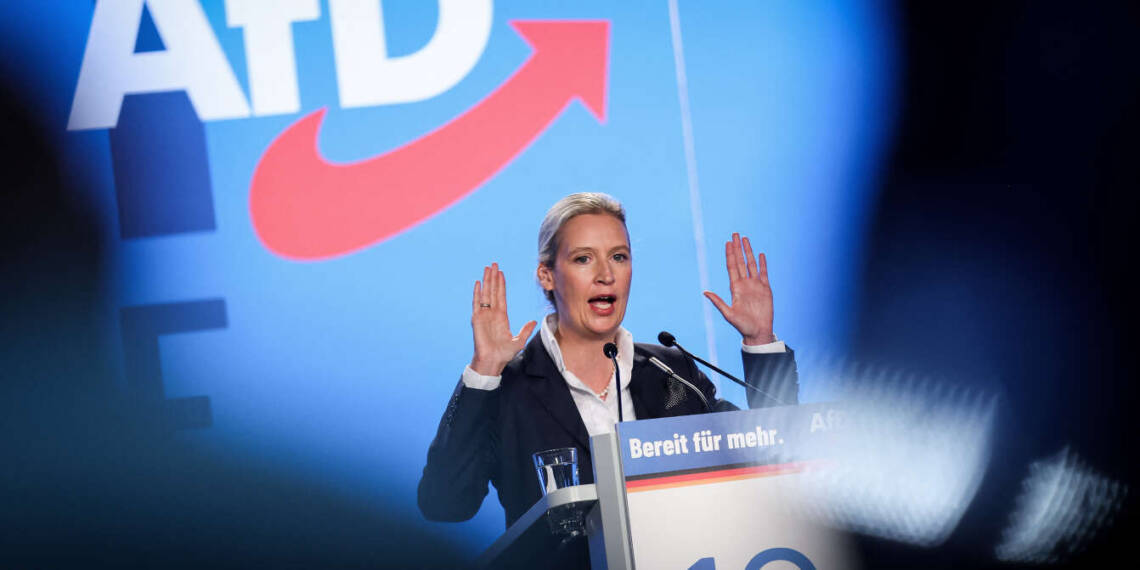A German left-wing publication called Correctiv, which received partial funding from Soros, recently faced criticism for altering its story. The publication initially made claims about a high-level meeting between the nationalist AfD party and members of the Identitarian Movement, suggesting a right-wing plot to deport millions, including German citizens with migrant backgrounds. The article led to widespread protests against ‘far-right extremism’ across Germany.
However, the publication later amended its narrative. The accuracy of the initial accusations has been questioned, prompting scrutiny of Correctiv’s reporting practices.
Join us on Telegram: https://t.me/tfiglobal
In a recent interview, Anette Dowideit, deputy editor of Correctiv, asserted that the German press had misunderstood their reporting on the November 25th meeting in Potsdam. Dowideit claimed that Correctiv did not mention deportations, contradicting their earlier article. However, this assertion is contradicted by the article itself, as the article explicitly states that the “shared goal” of the participants of the meeting “is the forced deportations of people from Germany based on a set of racist criteria, regardless of whether or not they have German citizenship.”

The article also draws a historical parallel with the Nazis, suggesting that the discussed concept at the Potsdam meeting is reminiscent of the Nazis’ 1940 plan to deport four million Jews to Madagascar.
The discrepancy between Dowideit’s statement and the content of the article raises questions about Correctiv’s consistency and intent.
Conservative German media outlets have observed clandestine modifications to the summary of Correctiv’s book, “The AfD Complex,” focusing on the party’s activities. Initially stating “plans for the deportation of millions of Germans with a migrant background,” the text was altered to substitute ‘deportation’ with ‘expulsion.’ Subsequently, the revised version reads, “expulsions of millions of people from Germany,” with no mention of German citizens.
Read More: After next Election, Germany can quit the EU
Although the Potsdam negotiations may have been discreet, the discussed points may not have been as confidential. According to Dieter Stein, editor-in-chief of Junge Freiheit, it is now evident that the private meeting primarily covered a stringent migration policy, involving border control and the systematic deportation of rejected asylum seekers and illegal immigrants—implemented on a large scale, aligning with Chancellor Olaf Scholz’s recent assurances.
In an interview with Junge Freiheit, participants of the Potsdam meeting strongly refuted discussing the mass expulsion of foreigners with the right to remain or the deportation of Germans with a migration background. Ulrich Vosgerau, a participant and constitutional law expert representing the AfD, has opted for legal recourse against Correctiv for making false accusations.
The left-wing publication faces criticism not only for its inaccurate reporting but also for receiving substantial financial support from German taxpayers. Despite Anette Dowideit’s claim that they are not government-funded, Correctiv obtained a significant portion of its funding, €431,000, from the federal treasury last year. Additionally, the state of North Rhine-Westphalia contributed €145,000, along with various federal agencies and foundations, resulting in substantial taxpayer contributions.
The Federal Ministry of Education and Research granted €266,000 to Correctiv in the past two years. Although the platform asserts independence from political and economic influences, concerns arise about potential political bias. Notably, Managing Director Jeannette Gusko, who was previously associated with the ministry, has been a regular speaker at events organized by the governing social democrats, raising questions about the publication’s political affiliations.
Read More: In the next 10 yrs. both Germany and France can LEAVE the EU
Despite Correctiv’s inconsistent reporting and evident political bias, mainstream political parties are leveraging the revelations to advocate for the banning of the AfD. Chancellor Olaf Scholz, in a passionate speech in the Bundestag, urged “democratic parties” to unite against perceived threats to democracy. He invoked concerns about conferences discussing the “remigration” of a segment of the population, drawing historical parallels to the darkest times in German history, specifically the Nazi era.
In response, AfD co-leader Alice Weidel criticized the government, characterizing her party as the target of an “unprecedented smear campaign.” The AfD is gaining traction in polls as more Germans express disillusionment with the government’s migration policies, tax increases, and environmental ideology. Currently, the party holds the second-strongest position in Germany, polling at 22% on the national level.

The prevailing sentiment among the German public appears to be shifting towards the AfD party, known for its Euro-skeptic stance. The likelihood of Chancellor Scholz winning this time seems diminished due to his actions, while the AfD Party is positioned to take power. The controversy surrounding Correctiv’s reporting on the AfD’s alleged plot has raised significant concerns about journalistic integrity and potential political bias turning Germany into a land of chaos.







